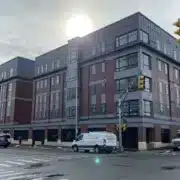
In a revealing conversation on the evolving landscape of the U.S. housing market, former Zillow CEO Spencer Rascoff shared his insights into the trends that are redefining what the future of housing and home ownership looks like in America.
Amid rising prices and a notable shift in homeowner behaviors, Rascoff’s commentary sheds light on a market at a crossroads, facing the challenges of affordability, supply constraints, and a reimagining of the American Dream.
Limited Supply and Home Price Appreciation
Rascoff echoes the sentiment that the U.S. housing market’s future is tightly interwoven with the issue of supply and demand. With a notable scarcity in housing inventory exacerbated by anti-development policies and mortgage rate lock-in, home price appreciation seems inevitable.
This dynamic has created a market where most cannot afford to move, even if their current home no longer meets their needs, due to the financial implications of higher mortgage rates on new properties.
The Shift in Homeownership Dynamics
The conversation also delved into the changing perceptions and realities of homeownership. The traditional milestone of purchasing a home in one’s late 20s has now shifted to the mid to late 30s, with an increasing number of prospective homeowners exploring co-ownership as a viable path.
This trend, highlighted by the recent purchase of a $110 million home in Aspen by two billionaires as co-owners, signifies a broader acceptance of shared investment in real estate as a response to soaring prices and limited inventory.
Picasso and the Co-Ownership Model
Rascoff’s current venture, Picasso, aims to address the affordability crisis by promoting the efficient use of existing housing stock through co-ownership. With the expansion into 200 more markets and a surge in user engagement, Picasso is at the forefront of offering a novel solution that could redefine homeownership for many Americans.
By facilitating shared ownership, Picasso not only makes luxury homes more accessible but also introduces a model that could be applied to various market segments.
A Broader Perspective on Market Dynamics
The discussion also touched upon the broader implications of current market dynamics, including the contentious Disney proxy fight, as a reflection of the heightened activity by activist investors.
Rascoff’s perspective, informed by his extensive experience as a manager and CEO, suggests a nuanced view of activism in corporate governance, emphasizing the case-specific nature of such interventions and their potential impact on company management and direction.
Looking Ahead
As the U.S. housing market continues to navigate through a period of significant transformation, the insights from industry leaders like Spencer Rascoff offer a valuable lens through which to understand the complexities and opportunities that lie ahead.
Whether it’s through adapting to new ownership models or redefining the parameters of the American Dream, the path forward will undoubtedly require innovative solutions to the persistent challenges of affordability and supply.
The evolving narrative of homeownership in the U.S. underscores a fundamental shift in how Americans perceive and pursue the dream of owning a home. As the market adapts to these changes, the conversation around housing is poised to continue, with potential implications for policy, industry practices, and the very fabric of American life.
Related posts:
 Surge in US Housing: A Close Look at the November 2023 Boom
Surge in US Housing: A Close Look at the November 2023 Boom
 Seattle Fort Lawton Housing Plan Revision: A New Vision for Affordable Living
Seattle Fort Lawton Housing Plan Revision: A New Vision for Affordable Living
 2024 Real Estate Recession Warning: A Closer Look at the Housing Market Dynamics in Arizona
2024 Real Estate Recession Warning: A Closer Look at the Housing Market Dynamics in Arizona
 Affordable Housing in Highland Park: A Sustainable Approach to Homeownership
Affordable Housing in Highland Park: A Sustainable Approach to Homeownership
 White House Initiative for Office-to-Housing Conversions Faces Hurdles, Developers Report Delays
White House Initiative for Office-to-Housing Conversions Faces Hurdles, Developers Report Delays



